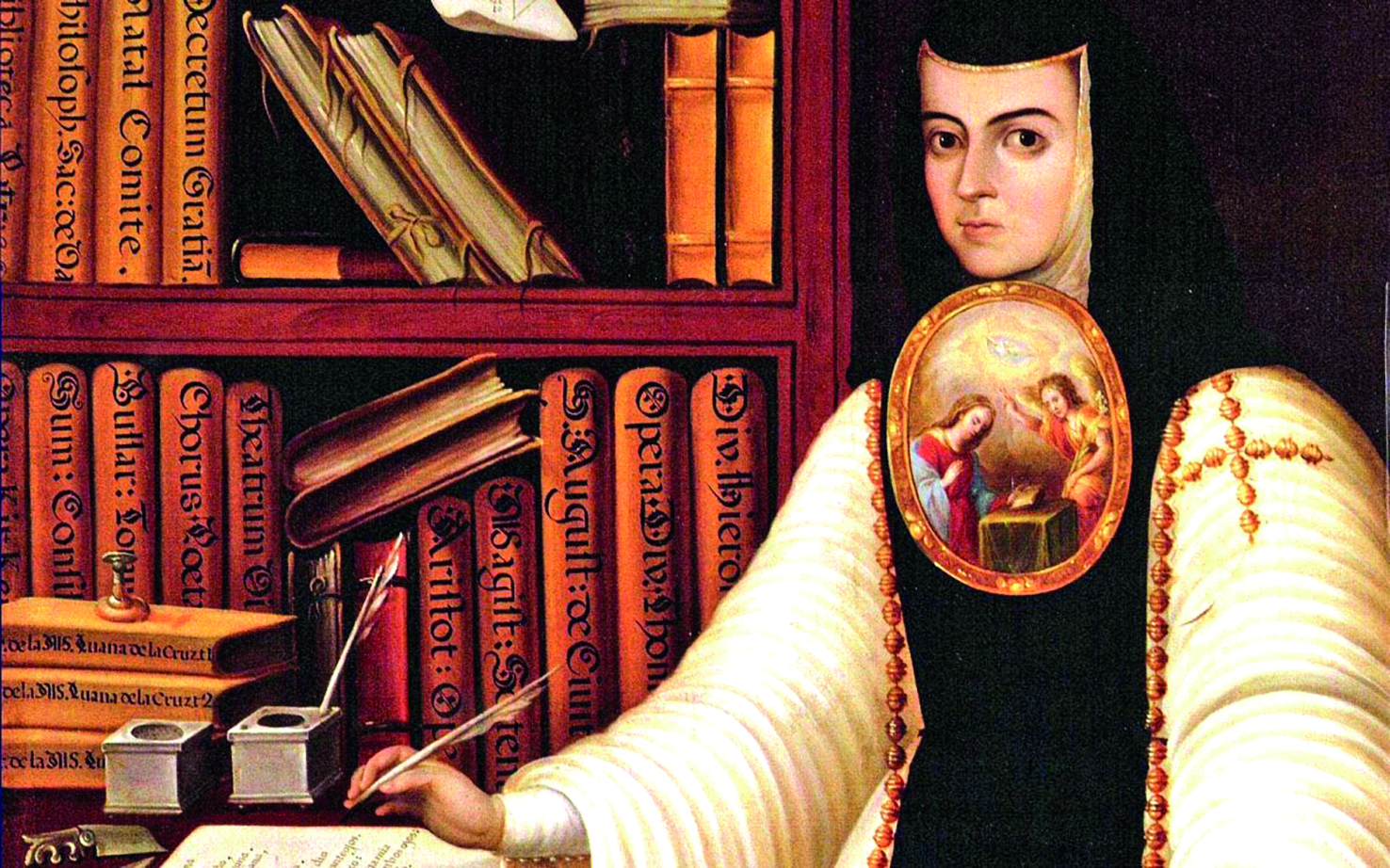1651 – 1695
Have you ever wondered who the woman was on the green 200 Peso note? Why is there a picture of a nun? Sor Juana Inés, best known as a poet, is also honored as a scientist, musician, song writer, playwright, philosopher and one of the first outspoken advocates for women’s rights. She was born near Mexico City, the illegitimate daughter of a nobleman and a woman who may have been part Indian. At the time of her birth the accepted social climate for women was oppressive, disrespectful, bordering on disdainful. Women were denied education and were thought of as ignorant. The proper virtue for a woman was to keep silent and subjugate herself to the male-dominated society. Juana, being a gifted child, learned to read and write by the time she was 3 years old. Since reading was forbidden to woman, she would hide in the chapel of her grandfather’s hacienda to read books from his library. She also learned Latin by the time she was 10. She had an insatiable appetite to learn, whatever the subject might be. She would punish herself for not learning fast enough by cutting off her hair. In 1659 she went to live in Mexico City where she became known as a child prodigy. At the age of 16 she became a maid-in-waiting at the court of Leonor Carreto, the wife of the Viceroy. By this time in her life, she had written many poems. Being denied a formal education, she had no choice but to join a Roman Catholic order of nuns where it was acceptable to pursue knowledge. She had private living quarters, with servants, where she could read, write and study, as an unmarried woman.
Trouble started for her when she wrote some secular plays. The Archbishop of Mexico, Francisco Aguiar y Seijas, began attacking her after the Bishop of Puebla published some of her writings. She was punished and tortured by the Inquisition “for living without religion in a religious community” and was forced to stop writing. All her work was burned, her library was sold, and the money was given to charity. Only a few of her poems, plays, and other works are still in existence from the private collections of the wife of the Viceroy, who at one time may have been her lover.
A festival was formally organized by the National Museum of Mexican Art in 1994. The Sor Juana Festival: A Tribute to Mexican Women, includes literature, music, visual arts, dance, and theater, showcasing the accomplishments of Mexican women from Mexico and the United States.
Octavio Paz won the Nobel Prize for Literature in 1990 for the book he wrote about her. There are a couple of movies available from Amazon.com based upon her life. Amazon also carries some of her poems in English and Spanish.
“Who sins more, she who sins for pay or he who pays for sin?”, Sor Juana Inés de la Cruz
For all your real estate needs, including Bank Trusts and FM3’s please contact me.
Rosarie Salerno, Mexican Beach Developers, Puerto Peñasco
rosariesalerno@hotmail.com, cell 044 (638) 384-7145, (638) 383-8417 or (520) 226-4267























